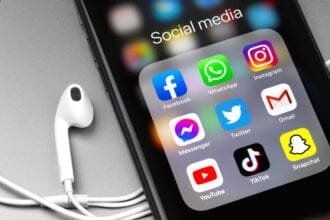Back on my 30th birthday, my wife gave me a copy of Logan’s Run, with a card ensuring me that I’d found sanctuary. The joke is probably lost on those who haven’t seen this wonderful sci-fi B-movie, as is the title of this post, but you can crib from the script here.
But I’ll get to the point of this post, I just read in the New York Times that Equifax, one of the larger consumer credit reporting agencies in the United States, is developing an “i-card” service that will let you create and then assert an online identity, backed up by them. Yes, they’re hardly the first to offer some kind of online identity validation, but their being a major offline player may make them different than OpenID or similar services. Then again, the article suggests that the service is complex to use, so it might just fall under its own weight.
In any case, I hope that the blogosphere takes these efforts seriously. As I’ve noted in the past (e.g., here), it strikes me as oddly antisocial that anonymous publishing is the norm in social media, at least for commenters. Yes, anonymity makes sense for whistle blowers, political dissidents, and anyone else who fears retribution. But it is hardly necessary fo…
Back on my 30th birthday, my wife gave me a copy of Logan’s Run, with a card ensuring me that I’d found sanctuary. The joke is probably lost on those who haven’t seen this wonderful sci-fi B-movie, as is the title of this post, but you can crib from the script here.
But I’ll get to the point of this post, I just read in the New York Times that Equifax, one of the larger consumer credit reporting agencies in the United States, is developing an “i-card” service that will let you create and then assert an online identity, backed up by them. Yes, they’re hardly the first to offer some kind of online identity validation, but their being a major offline player may make them different than OpenID or similar services. Then again, the article suggests that the service is complex to use, so it might just fall under its own weight.
In any case, I hope that the blogosphere takes these efforts seriously. As I’ve noted in the past (e.g., here), it strikes me as oddly antisocial that anonymous publishing is the norm in social media, at least for commenters. Yes, anonymity makes sense for whistle blowers, political dissidents, and anyone else who fears retribution. But it is hardly necessary for your average TechCrunch commenter. Instead, it makes it easy for people to post vitriol – or just nonsense – without any risk to personal reputation. I don’t see the social value.
Moreover, just imagine how easy it would be for someone who didn’t like you do start posting embarrassing comments and signing them with your name. Or perhaps someone might pursue a more subtle strategy, such as posting reasonable-sounding comments in order to advance an agenda. Less speculatively, we’ve seen how anonymity can be troublesome for the integrity of Wikipedia editing.
Given the growing role of social media, we’re going to have to cross this information accountability bridge sooner or later. I hope it’s sooner. Would it be nice if we developed a cultural norm that people stood proudly behind their online words?






